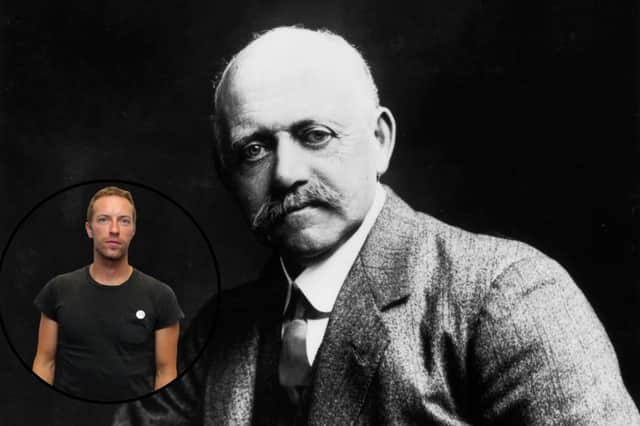Why is Coldplay frontman Chris Martin's great-great-grandad the man we can thank for the clocks going back?


Confusion that never stops seems to surround the ticking clocks going back every year as we approach the winter months. Exactly why it happens is a mystery to many - you can read more about that here - along with who thought of doing it in the first place.
And there's even an intriguing connection between Coldplay singer Chris Martin and how Daylight saving time came to be in the first place. No, it's not just the fact that Coldplay have a song called 'Clocks' either.
Advertisement
Hide AdAdvertisement
Hide AdAlso known as British Summer Time, the clocks went forward in March this year and will now go back on Sunday, October 29. but it might come as a surprise for you to know that the great-great-grandfather of Chris Martin is the man we can thank for this.
NationalWorld takes a closer look at William Willet.
Who was William Willet?
Mr Willett (1856 - 1915) was a builder and advocate of British Summer Time in the UK. He was born in Farnham, Surrey, and studied at the Philological School in Westminster.
The story goes that after riding his horse one morning in Petts Wood, Kent - where he lived most of his life - he noticed that many blinds were still down on homes. and from here, the idea of daylight saving occurred to him.
Daylight saving itself is not directly credited to Willet. It is a practice that dates back to the ancient world. Overseas, daylight saving was already being proposed in the modern world by New Zealander George Vernon Hudson.
How did he petition for Daylight Savings Time to be introduced?
Advertisement
Hide AdAdvertisement
Hide AdUsing his own money and resources, Willett published a leaflet called 'The Waste of Daylight' in 1907. He largely spoke about the fact that he was unhappy that his golf game was cut short when the sun went down.
In the leaflet, he proposed that the clocks should go forward by 80 minutes in four steps during April and reversed the same way during September. The evenings would then remain light for longer, increasing daylight time and also saving £2.5 million in lighting costs.
By 1908, Willett had managed to gain the support of MP Robert Pearce and also, a young Winston Churchill.
The UK didn’t actually start observing Daylight Savings Time until after Willett’s death in 1915.
In 1916, during World War I, the German army turned the clocks forward in an attempt to save energy. Many European countries – including the UK – followed Germany’s example not long after.
Comment Guidelines
National World encourages reader discussion on our stories. User feedback, insights and back-and-forth exchanges add a rich layer of context to reporting. Please review our Community Guidelines before commenting.
